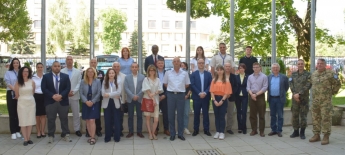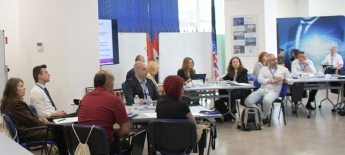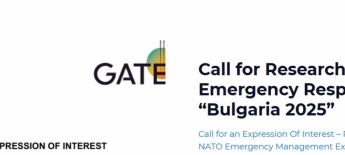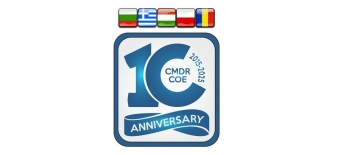Euro-Atlantic Resilience Forum 2022
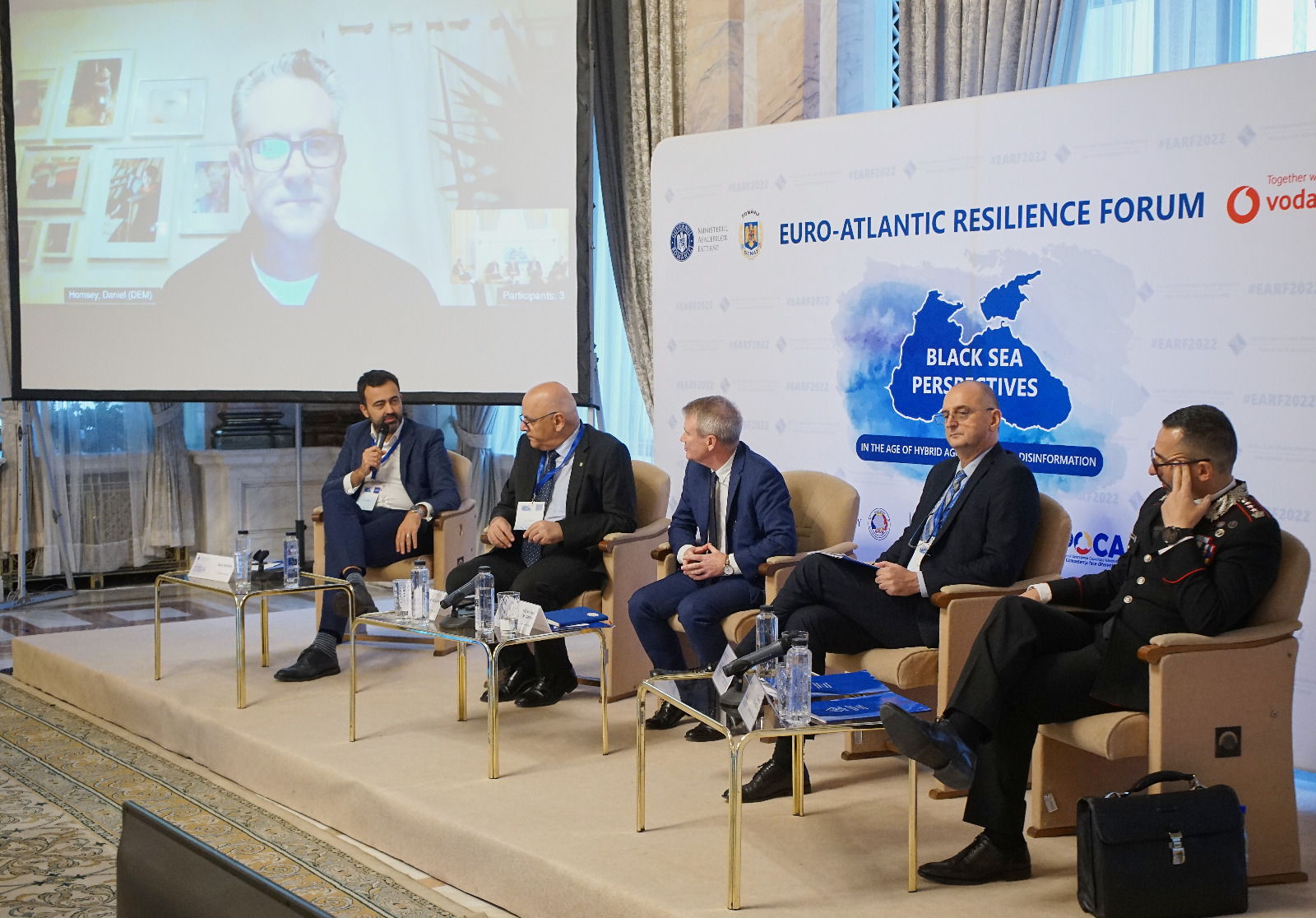
Date: (16-11-2022)
The Euro-Atlantic Resilience Forum, held 15-16 November 2022 in Bucharest, Romania, aims to bring together the most relevant actors, key decision makers, and top experts in all aspects of resilience within the scope of NATO and EU interests, and is a focal point of global debates on resilience while also emphasizing the importance of the Black Sea Region for the whole transatlantic community. Inclusiveness and empowerment of non governmental actors (NGOs, academia, businesses) are key at every step of the process, from the moment a vulnerability is identified until a solution is designed and a policy is implemented.
The Forum is organized by the Euro-Atlantic Resilience Centre (E-ARC), based in Bucharest, Romania, and represents an inter-agency hub and research body, tasked with promoting and pursuing NATO and EU resilience targets.
More than 60 speakers in 12 sessions and side events, dealing with the most important areas of resilience, as set out in the strategic documents of NATO and the EU: societal and democratic resilience, resilience to emergencies and disasters, resilience to climate change, resilience to emerging and disruptive technologies, the resilience of critical infrastructures (transportation, communications), continuity of government etc.
The CMDR COE Director, Colonel Orlin Nikolov, participated as a Speaker at the Panel "Resilient Cities for the Future: Natural disasters and the Spiral of Disinformation", together with Dr. Raed Arafat, Secretary of State, Head of the Department for Emergency Situations, Ministry of Internal Affairs, Romania.
All cities with high risks of disaster should develop and implement resilience plans to ensure rapid and robust recovery from disasters. Communities should identify which resilience planning tools best suit their priorities and resources. Planning efforts of any kind should engage a diverse group of community stakeholders, define community risk by linking critical social functions to the built environment, and set appropriate functional recovery goals for the community. Implemented plans should be evaluated and updated as necessary, based on the key requirements for improving urban resilience.
.
News
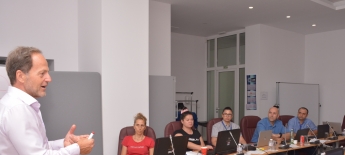 Computer-Assisted Exercises and Wargaming Training Successfully Conducted in Sofia
Computer-Assisted Exercises and Wargaming Training Successfully Conducted in SofiaThe Course, held from 7 to 11 July 2025, concluded successfully, bringing together participants from the CMDR COE, the Bulgarian National Military Training Centre “Charalitsa”, and representatives from the Bulgarian Ministry of Defence.
» read more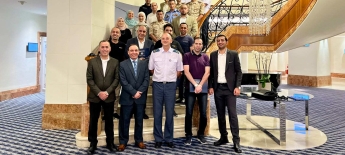 Enhancing Crisis Management Capabilities in Jordan
Enhancing Crisis Management Capabilities in JordanA Collaborative Initiative Focused on Modernizing Crisis Response through M&S, C2, and AI Integration.
» read more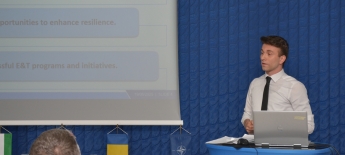 Completed Internship Programme
Completed Internship ProgrammeAn intern project on “Social Capacity in Disaster Respond: Enhancing Resilience by Education and Training”
» read more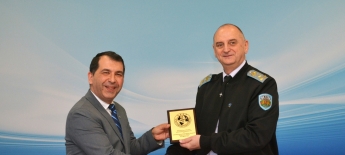 Awarded unconditional re-accreditation for Quality Assurance
Awarded unconditional re-accreditation for Quality AssuranceCMDR COE is proud with the received and focused on further challenges
» read more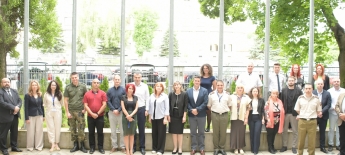 Building Integrity in Crisis Management and Disaster Response Course
Building Integrity in Crisis Management and Disaster Response CourseOn the 10th June 2025 , 20 students from 4 different nations started the 4-day long Building Integrity in Crisis Management and Disaster Response Course.
» read more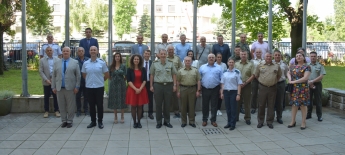 First Annual Discipline Conference for the Business Continuity Management Discipline
First Annual Discipline Conference for the Business Continuity Management DisciplineCMDR COE serves as the Department Head for the NATO BCM discipline.
» read more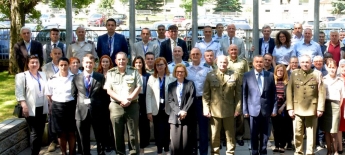 The 13th Annual conference of CMDR COE
The 13th Annual conference of CMDR COEPlacing the focus on the arising security challenges
» read more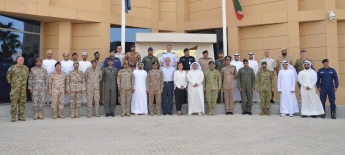 Successful NATO Crisis Management Training Held in Kuwait
Successful NATO Crisis Management Training Held in KuwaitThe Crisis Management and Disaster Response Centre of Excellence (CMDR COE), in cooperation with NATO and the NATO- Istanbul Cooperation Initiative (ICI) Regional Centre, successfully delivered a Mobile Training in Kuwait from 25 to 29 May 2025.
» read more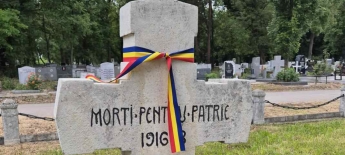 Romanian Day of National Heroes / Ascension Day
Romanian Day of National Heroes / Ascension DayCMDR COR Participation to the solemn ceremony organized by the Romanian Embassy in Bulgaria.
» read more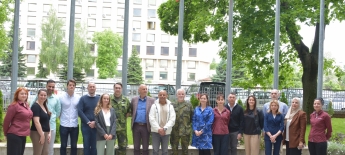 CMDR COE advances strategic and operational expertise in the integration of Gender Perspective
CMDR COE advances strategic and operational expertise in the integration of Gender PerspectiveGender Focal Point Course at CMDR COE
» read more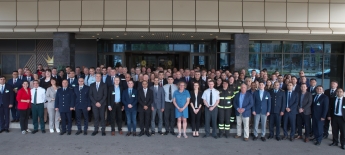 20th NATO EADRCC Emergency Management Exercise
20th NATO EADRCC Emergency Management Exercise The Final Planning Conference (FPC) for the Euro-Atlantic Disaster Response Coordination Centre (EADRCC) Emergency Management Exercise "BULGARIA 2025" took place from 20 May to 22 May 2025.
» read more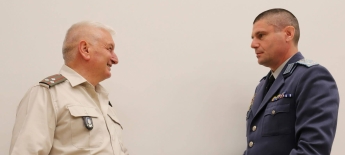 CMDR COE Plaque to Colonel Prof. Dr. Andrey Galev, MD
CMDR COE Plaque to Colonel Prof. Dr. Andrey Galev, MDRespect on the occassion of the 75th Anniversary of the fondation of the Scientific Applied Center for Military Epidemiology and Hygiene (NPCEH).
» read more CMDR COE Represented in OSAKA EXPO 2025
CMDR COE Represented in OSAKA EXPO 2025CMDR COE Intern Mr. Can Uyar participated in an Extensive Disaster Risk Reduction Education Program and OSAKA EXPO 2025 BOSAI Summit
» read more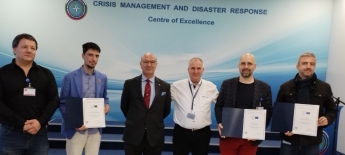 Completed Crisis Management in a Multilateral Framework course
Completed Crisis Management in a Multilateral Framework courseFrom 13th to 16th of May in CMDRCOE was conducted Crisis Management in a Multilateral Framework course
» read more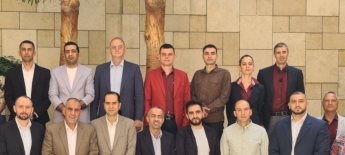 Successful Completion of the Exercise Planning, Modelling, Simulation, and C2 Systems Course
Successful Completion of the Exercise Planning, Modelling, Simulation, and C2 Systems CourseMain Planning Conference of AMMON SENTINEL 2025 exercise
» read more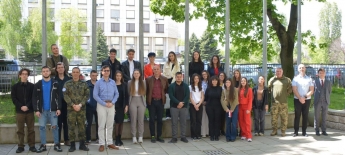 Inspiring workshop
Inspiring workshopTitled “Contemporary Crisis Management in Times of Great Power Competition”, 28 April 2025
» read more Groundbreaking Research on Strategic Narratives in Military Operations
Groundbreaking Research on Strategic Narratives in Military OperationsEnd of Autumn Iteration Internship
» read more Team Building Drawing Class
Team Building Drawing ClassCMDR COE staff enjoyed the magic of oil drawing in the Art Academy Studio on 25 APR 2025.
» read more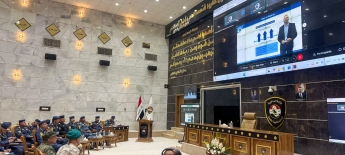 Enhancing Crisis Management Capabilities: CMDR COE Trains Iraqi FEDPOL
Enhancing Crisis Management Capabilities: CMDR COE Trains Iraqi FEDPOLA Collaborative Initiative with NATO Mission Iraq to Foster Resilience and Preparedness in Emergency Response
» read more Winners of the contest “One World, One Fate – United to the Future”
Winners of the contest “One World, One Fate – United to the Future”First Prize: Simona Marinova, 12-year old
Second Prize: Damyan Tonchev, 9-year old
Third Prize: Nikol Marinova, 10-year old
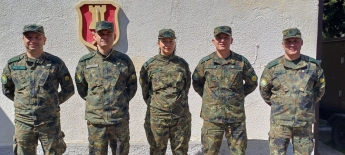 In Support of Multinational Exercise SEVEN STARS 25
In Support of Multinational Exercise SEVEN STARS 25Veles, North Macedonia – CMDR COE successfully took part in Exercise SEVEN STARS 25, held from 07 to 11 April 2025.
» read more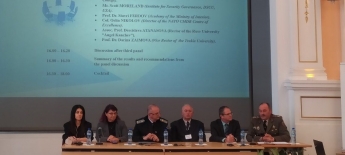 Panel Discussion “Enhancing National Resilience: Progress, Challenges, and the Way Forward”,
Panel Discussion “Enhancing National Resilience: Progress, Challenges, and the Way Forward”,Participation of the CMDR COE Director to the third panel: “The Role of Academia in Building National Capacity – Expanding Engagement and Connecting Theory with Practice.”
» read more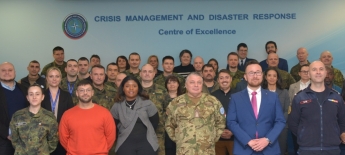 Disaster Response and Consequence Management for a Radiological Incident Course
Disaster Response and Consequence Management for a Radiological Incident CourseFrom 7 to 11 April 2025 CMDR COE, in close cooperation with the U.S. Department of Energy, conducts Disaster Response and Consequence Management for a Radiological Incident course.
» read more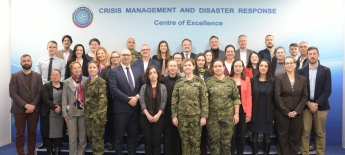 Climate Change and Security Course
Climate Change and Security CourseHot Climate Change and Security Topics will be discussed from 01 April to 05 April in CMDR COE.
» read more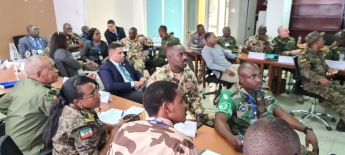 New Continent Reached by CMDR COE
New Continent Reached by CMDR COECMDR COE Successfully Delivers Mobile Education on Managing Contemporary Crisis in Ethiopia
» read more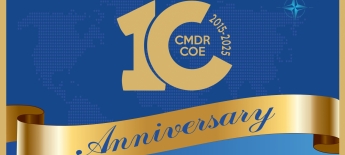 The 10th CMDR COE Anniversary
The 10th CMDR COE AnniversaryCMDR COE celebrates a decade since its accreditation as NATO Centre of Excellence.
» read more
